In Fig force F is gradually increased from zero Draw the graph between applied force F and tension T is the string . The coefficient of string friction between the block and the ground is μs
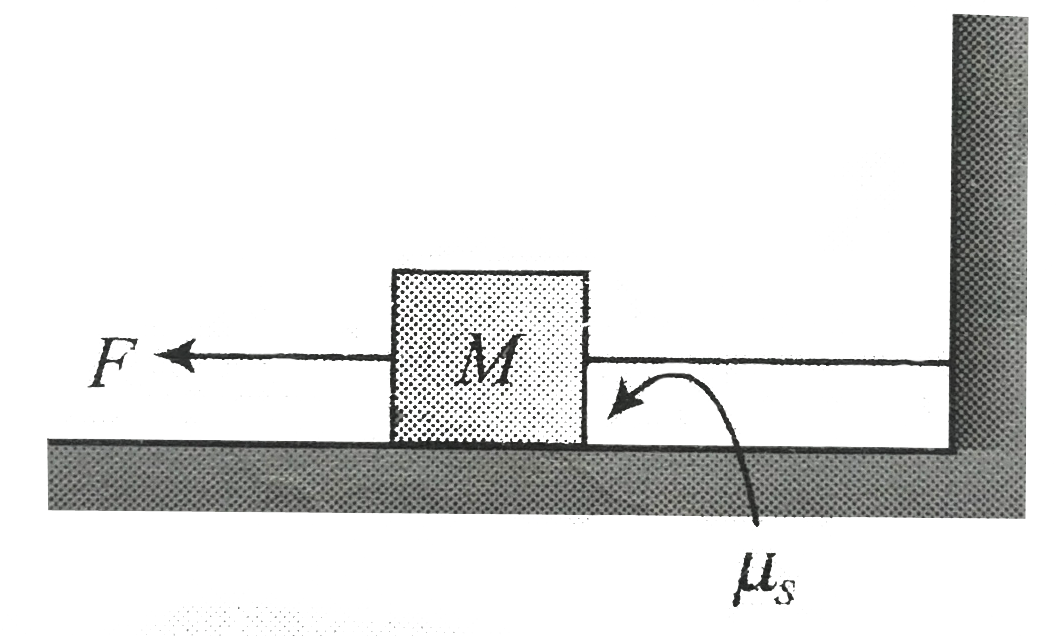
As the external force F is gradually increased from zero it is compensated by the friction and the string bears no tension. When limiting friction is achieved by increasing force F to a value till μsmg, the further increase in F is transferred to the string.
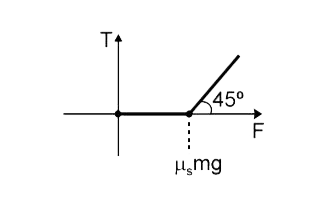
Topper's Solved these Questions
- NLM & FRICTIONBOOK - MOTIONCHAPTER - NLM & FRICTIONEXERCISE - EXAMPLE
47 Videos
- NLM & FRICTIONBOOK - MOTIONCHAPTER - NLM & FRICTIONEXERCISE - SOLVED EXAMPLE
16 Videos
- NEWTON'S LAWS OF MOTION & FRICTION BOOK - MOTIONCHAPTER - NEWTON'S LAWS OF MOTION & FRICTION EXERCISE - Exercise - 3 Section-B
12 Videos
- ONE DIMENSION MOTIONBOOK - MOTIONCHAPTER - ONE DIMENSION MOTIONEXERCISE - Exercise - 3 |Section - B Previous Year Problems | JEE MAIN
12 Videos
Similar Questions
Four block are arranged on a smooth horizontal surface as shown in figure .The masses of the blocks are given (see the fig ) The coefficient of static friction between the top and the bottom blocks is μs What is the maximum value of the horizontal force F applied to one of the bottom blocks as shown that makes all four block with the same acceleration ?
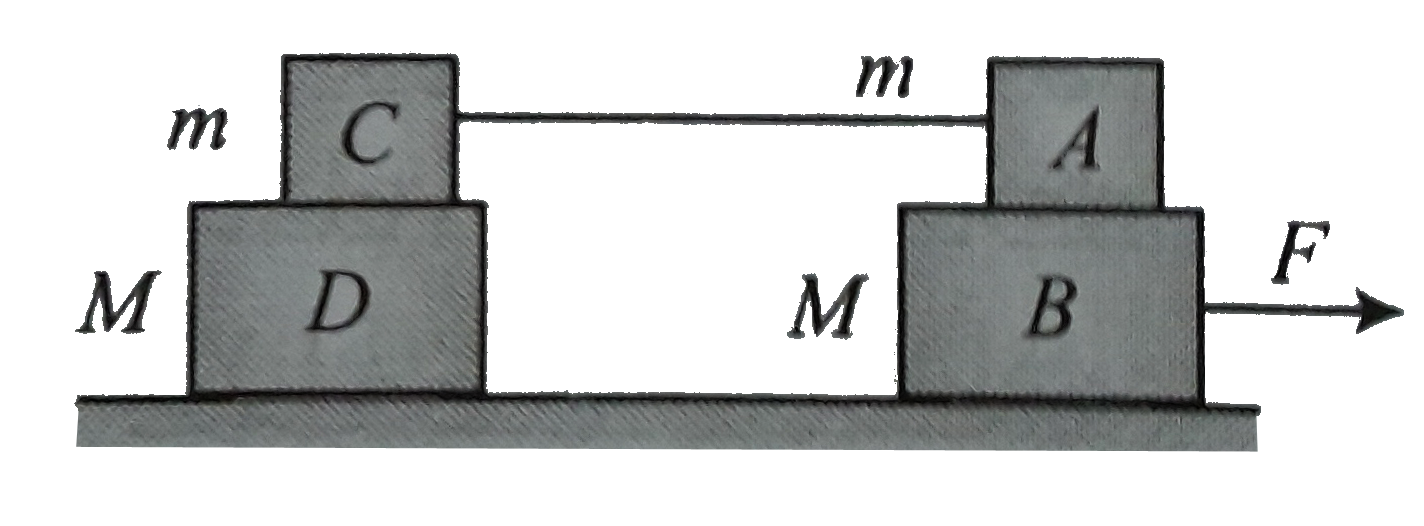
View SolutionIf force F is gradually increased from zero to 50N , tehn (a) find the minimum contact force, (b) find the maximum value of angle of friction when F=30N , (d) find the angle of friction when the block is moving with constant velocity and ( e) sketch a graph between friction and applied force.
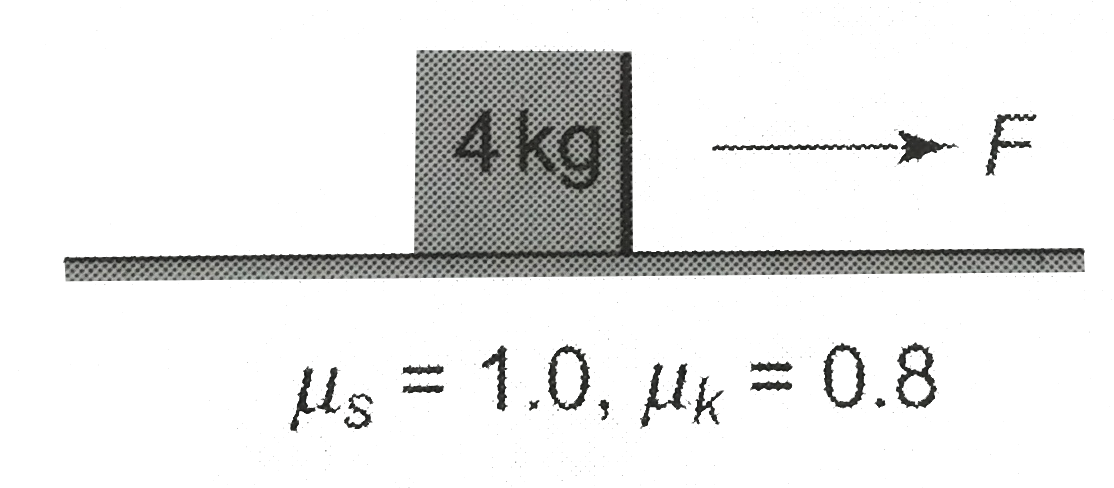
View Solution
Knowledge Check

A force F=2t is spplied at t=0 sec to the block of mass m placed on a rough horizontal surface. The coefficient of static and kinetic friction between the block and surface are μS and μk rspectively. Which of the following graphs best represents the acceleration vs time of the block(μS>μk)?A B
B C
C D
D
Two blocks are connected by a string and pulled by a force F=50N. If the coefficient of friction between the blocks and the ground is 0.2, friction force between the block B and the ground is :
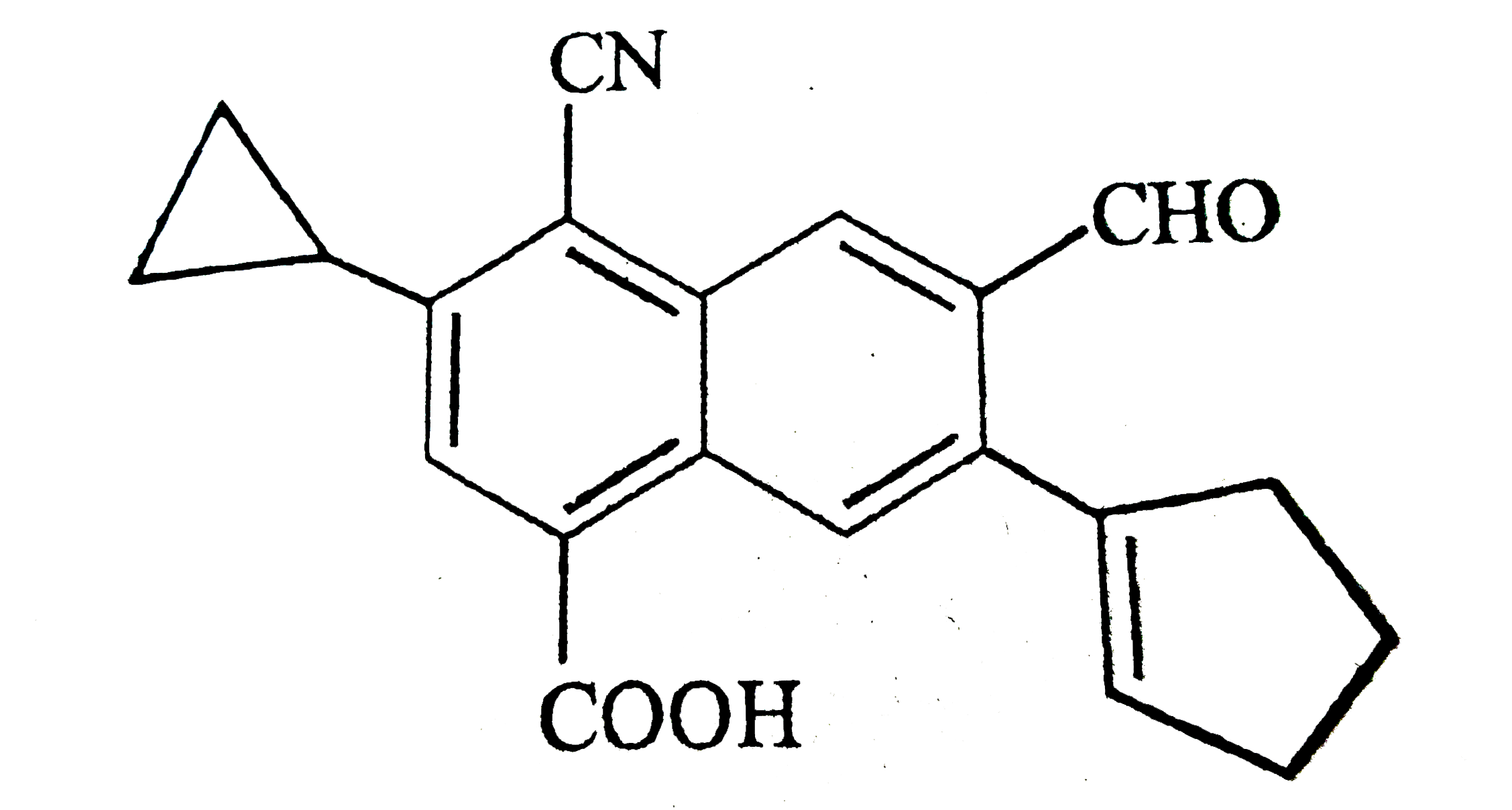 A20NB30NC40NDzero
A20NB30NC40NDzeroTwo identical blocks of weigth w are placed one on top of the other as shown in figure. The upper block is tied to the wall. The coefficient of static friction between B and ground is μ and friction between A and B is absent. When F=μwforce is applied on the lower block as shown. The tension in the string will be
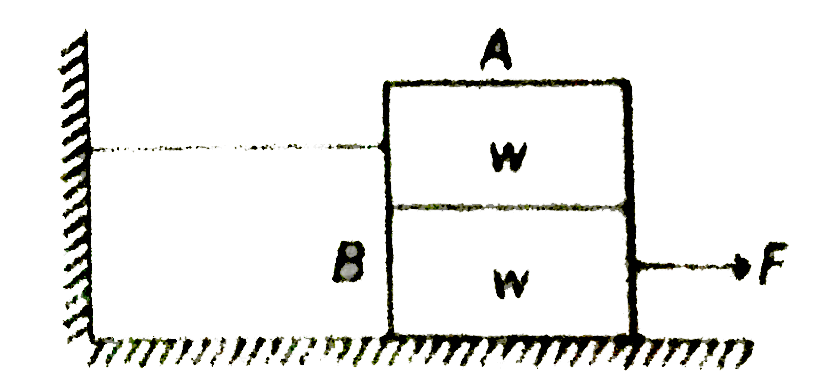 AμwBμw2C0D2μw
AμwBμw2C0D2μw
A force F is applied on the top of a cube as shown in the figure. The coefficient of friction between the cube and the ground is μ. If F is gradually increased, find the value of μ for which the cube will topple before sliding.
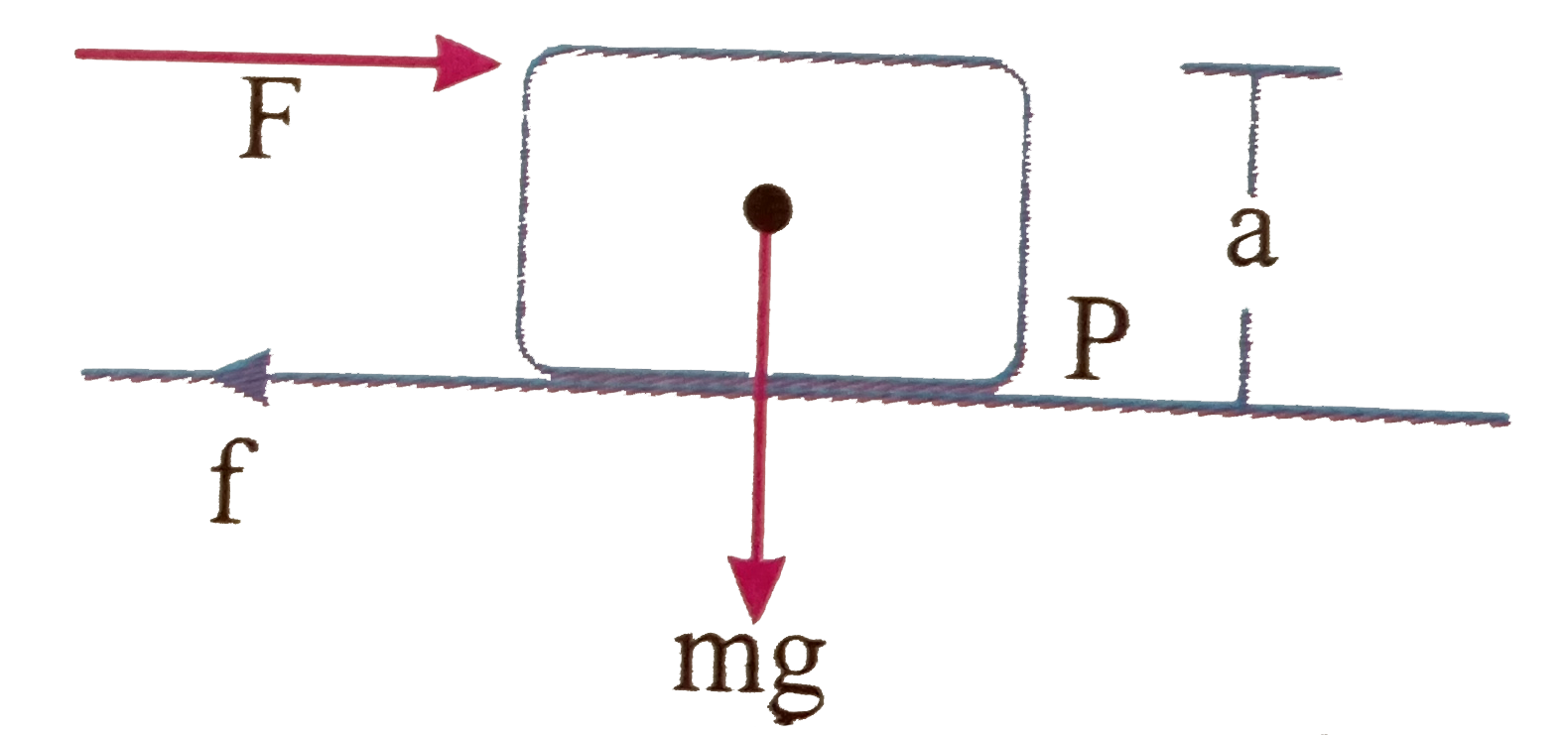
View SolutionTwo blocks A and B are lying on the table as shown in the figure. The coefficient of friciton between block A and block B is μ. The coefficient of friction between block B and ground also μ. An external force F is applied in the direction shown. The maximum value of the force F that can be applied without moving the blocks.
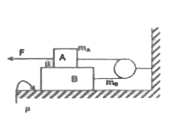
View SolutionTwo blocks of masses 2 kg and 4kg are connected through a massless inextensible string. The co-efficient of fricition between 2kg block and ground is 0.4 and the coefficient of friction between 4kg block and ground is 0.6. The forces F1=10N and F2=20N are applied on the blocks as shown in the figure. Calculate the frictional force between 4 kg block and ground (Assume initially the tension in the string was just before forces F1 and F2 wer applied).

View SolutionCoefficient of friction between pulley and light string is μ1. Calculate minimum coefficient of friction between block A and ground such that system can be in equibrium.
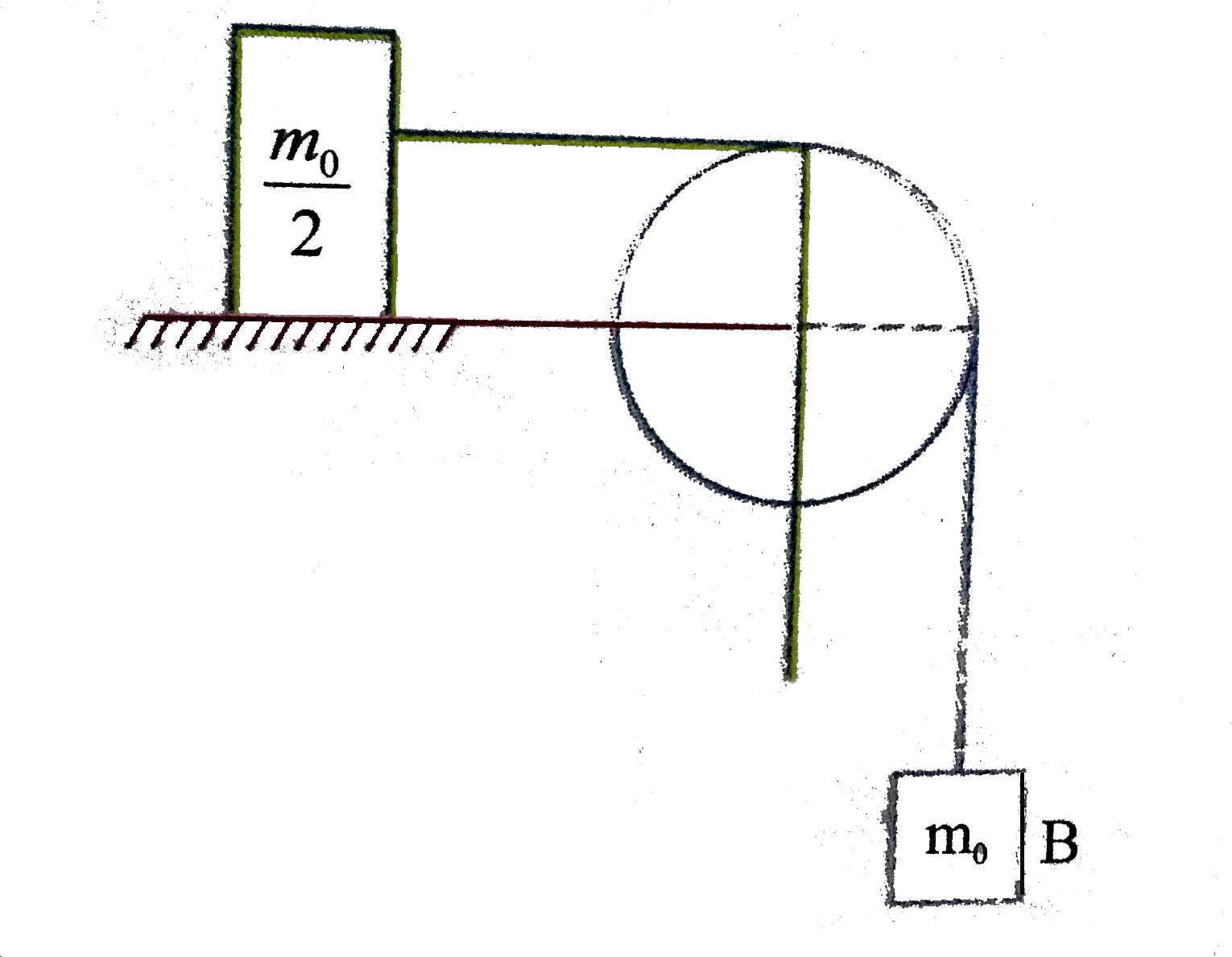
View SolutionA block of mass m2 is placed on a horizontal table and another block of mass m1 is placed on top is it. An increasing horizontal force F=αt is exerted on the upper block but the lowwer block never moves as a result. If the coefficient of friction between the blocks is μ1 coefficient of friction between the blocks is μ1 and that between the lower block and the table is μ2, then what is the maximum possible value of μ1/μ2 ?
View Solution
